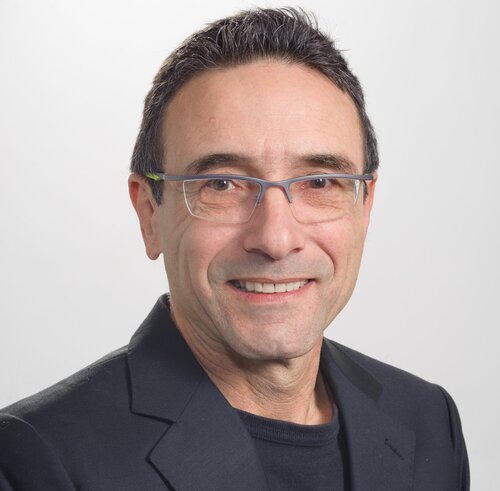
Lior Shapira, professor of periodontology at the Hebrew University-Hadassah Faculty of Dental Medicine in Jerusalem (Israel), became EFP president after the federation’s general assembly on March 20. He pays tribute to the work of his predecessor, Xavier Struillou, and outlines his priorities for coming year, during which the EFP will celebrate its 30th anniversary.
The EFP soul is about human relationships and personal interactions, acting as one community of 37 national societies. The last year under the presidency of Xavier Struillou was a far from typical year. The Covid 19 pandemic hit us personally and as an organisation: we could not travel, we could not meet, and EuroPerio10 was postponed to 2022. However, we gained new skills, such as how to use modern technology to maintain our Federation’s soul. Under Xavier’s leadership, we developed platforms for electronic communication and e-learning, and we learned how to use social media to communicate with our stakeholders efficiently. These new skills will stay with us after the virus has vanished and we will harness them to our goals.
The year 2021-22, under my presidency, will be the "Return to Normal Year". We need to find ways to go back to normal life, keep the tradition of the EFP, and strengthen the feeling of one community. My vision is to keep the EFP as the influential driving force of periodontology globally. The strategy is to focus on improving periodontal health as part of oral and general health. For this, we need to find ways to work together with family physicians, who are the first line of medical treatment, and such collaboration will promote oral and general health. Within the Federation, my goal is to boost the influence of female periodontists. We have a new generation of high-quality professional women, but they are still underrepresented in the professional forums – and this is the time to change it.
I have been involved in periodontal research and clinical periodontology for many years. During my career, I have served as a programme director, department chair, and associate dean. In all those roles, I worked as a team player with colleagues and students, believing that the team's force is stronger than the individual’s. As a former president of a national society, I have in-depth knowledge of the societies’ needs and how the EFP can work together with them. In the EFP framework, I have participated in many EFP workshops, served as the deputy chair of the scientific-affairs committee, and been a member of the executive committee for the last four years. I bring all this experience to my year as EFP president, which I consider one of the highlights of my career.
This year is unique for the EFP and its societies because it is the year of our thirthieth anniversary. I intend to create activities that will both celebrate our thirtieth year of working as a community and promote periodontal health and science globally. When it started, in 1991, the EFP comprised 11 European national societies. We are now one of the largest dental organisations in Europe, with 30 national periodontal societies as members as well as our seven international associate members from all over the world. The national societies are the core of the EFP, their human capital is the heart and soul of the EFP, and the power of these 37 societies together is much more than the sum of their individual strength.
A strong organisation
The EFP’s founders established a strong organisation with the backbone of science and research, launching consensus workshops – sometimes together with other fields of medicine – whose reports have become the "bible of periodontology" all over the world. Recent years have been very fruitful with many achievements that can make us proud. Together with the American Academy of Periodontology, we constructed a new classification for periodontal diseases. With the participation of all national societies, we published new evidence-based guidelines for periodontal treatment. Exciting projects – on periodontitis and cardiovascular disease, periodontitis and diabetes, periodontitis and caries, and oral health and pregnancy – were also published. All these projects are evidence-based and approved by experts in dentistry and medicine, and all this high-level scientific information is on the EFP website, available to everybody. We also established a new communications team, a modern website, and have been highly active in all the popular channels of social media.
It is hard to get to the top, but it is harder to stay there. The main challenge for the coming years is to keep the EFP as a world-leading organization in dentistry. We need to attract many young individuals to join our national societies, expand our international associate member societies, and keep EuroPerio one of the most significant dental conventions worldwide. It is not an easy task, but I promise to work hard for those targets.




